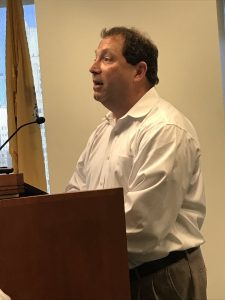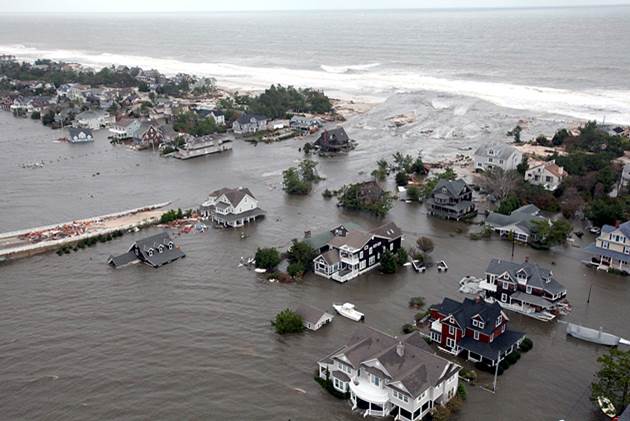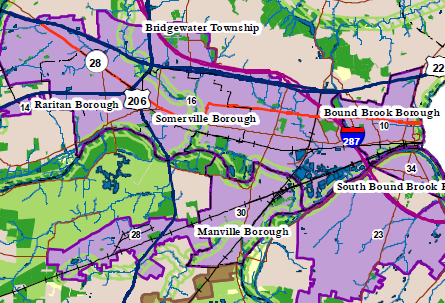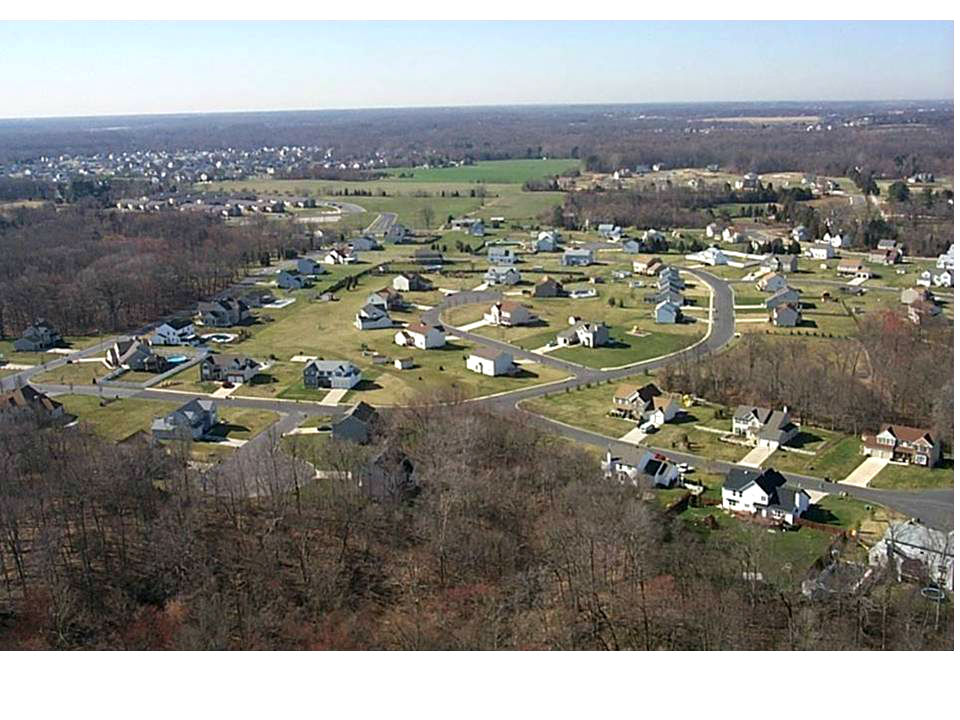New Jersey Future Blog
Focus on Water for Infrastructure Week
May 21st, 2019 by Ed DiFiglia
Each year, Infrastructure Week offers a nationwide week-long series of events designed to bring attention to the need for investment in infrastructure of all kinds — roads, bridges, transit, broadband, energy and water. This year, New Jersey Future and Jersey Water Works celebrated Infrastructure Week by hosting three events that focused on water infrastructure, as well as publishing several articles drawing attention to the specific problems facing water infrastructure in the state.
First up was an explanatory workshop on New Jersey Future’s Green Infrastructure Municipal Toolkit, a comprehensive, free online resource to help municipal officials familiarize themselves with planning, implementing and maintaining green infrastructure installations. The workshop was led by representatives from New Jersey Future, local partner Pinelands Preservation Alliance, and consultants involved with developing the toolkit, and highlighted the economic and community benefits of using green infrastructure for stormwater management, especially in the face of a changing climate. Participants, which included elected officials, land use board members, and stormwater professionals, were shown how to think differently about stormwater management systems — “manage stormwater at the source; don’t pipe it off site” — and encouraged to think about changes in process that can lead to better outcomes. For example, meeting early on with developers to discuss site design and community needs can result in a more resilient and appealing development and a more predictable approval process. As one local official observed, “Showing this stuff as a positive will help these projects move along.”

Camden County Municipal Utilities Authority’s Andy Kricun discussing Water Bank financing for green in frastructure.
The second event, sponsored jointly by New Jersey Future, Jersey Water Works, the New Jersey Water Bank and the New Jersey Department of Environmental Protection, was also directed at municipal officials, and walked them through the process of applying for funding from the Water Bank for green infrastructure projects. In encouraging applications for green infrastructure financing, Andy Kricun, the executive director and chief engineer at the Camden County Municipal Utilities Authority, said, “Clean water utilities have the opportunity, and the obligation, to be environmental champions in their communities.”
Both of these free tools will prove particularly useful as the state Department of Environmental Protection finalizes updated rules that will require the use of green infrastructure for stormwater management. And both tools can serve as national models for municipalities that want to leverage green infrastructure, and to find the necessary funds for green infrastructure projects.
The third event, sponsored by Jersey Water Works’ Education and Outreach Committee, took participants on a tour of Asbury Park’s wastewater treatment plant and then to a networking happy hour. Participants were able to see the inner workings of a wastewater treatment plant and learn what happens to our waste after it goes down the drain. Residents, elected officials, and other curious folks were able to explore the labyrinthine plant. Afterwards, many of the participants gathered to share their experiences and things they learned from the tour. It was an eye- (and nostril-) opening experience!
In addition, New Jersey Future Managing Director for Policy and Water Chris Sturm appeared on a panel at the Princeton Public Library, with DEP Commissioner Catherine McCabe and Rutgers Professor Dan Van Abs, discussing the safety of New Jersey’s drinking water, and New Jersey Future coordinated the publication of two op-ed articles in New Jersey newspapers:
- Five Ways To Celebrate Infrastructure Week, which listed Infrastructure Week events across the state, was written by Doriann Kerber, a Borough of Milltown councilwoman and Jersey Water Works member and a member and board secretary for the Middlesex County Water Resources Association, and was published in the Asbury Park Press at the start of Infrastructure Week;
- Lead pipes threaten public health. Partial replacements could make it worse, authored by Chris Sturm and published in The Record on May 11, focused on the complex problem of how best to replace lead water service lines.


















